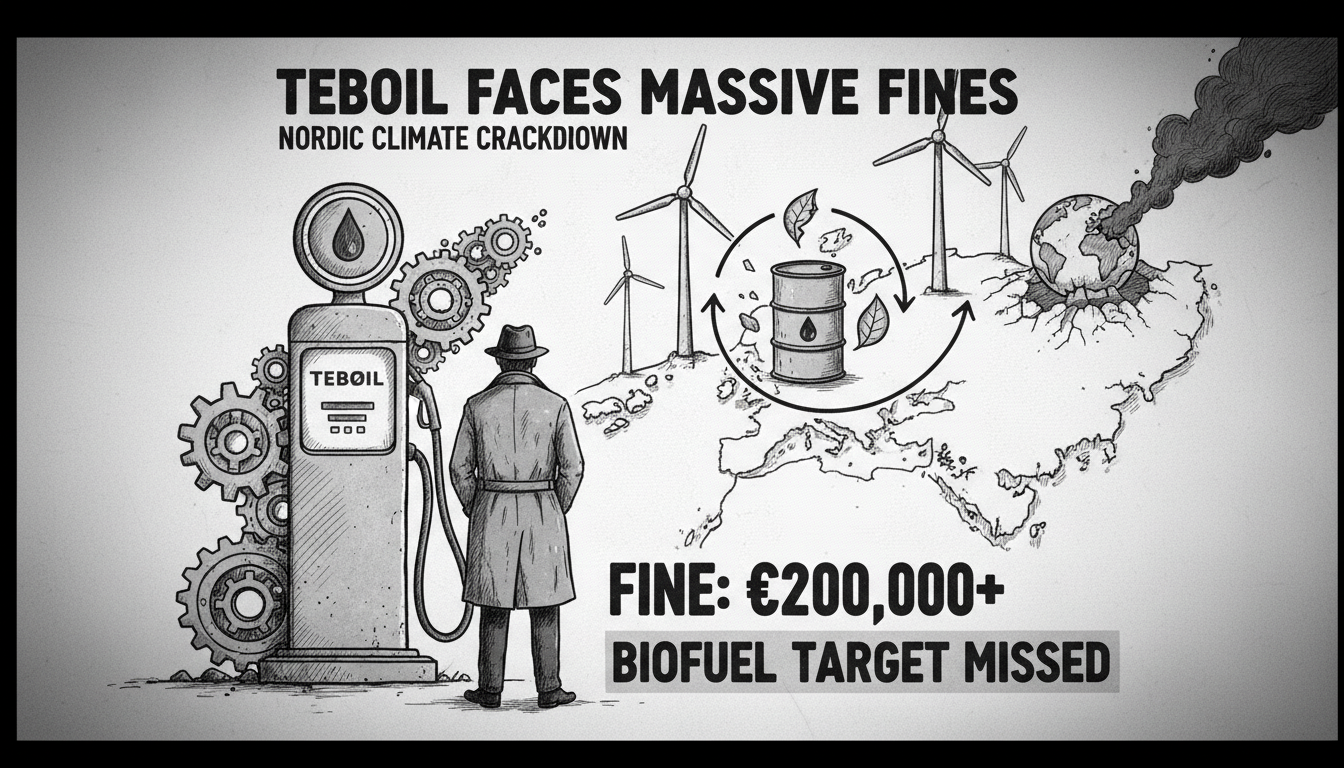The Åland Islands government plans to impose substantial fines on Finnish fuel company Teboil for failing to meet renewable fuel distribution requirements. The company faces two separate penalties totaling over 200,000 euros for non-compliance with Finland's biofuel regulations during the previous year.
Åland authorities have issued two enforcement decisions against the fuel distributor. Decision numbers 54 and 64 detail the violations. The larger penalty exceeds 170,000 euros and has been under consideration since September. Teboil had until October 14 to submit their statement regarding this matter. The smaller fine exceeds 30,000 euros and was under review from November 18. The company has until December 2 to respond to this second penalty.
Finnish law requires fuel distributors to ensure renewable energy sources account for specific percentages of their total energy content. Companies supplying more than one million liters of gasoline, diesel, biofuels or other renewable fuels annually must comply with these distribution obligations. The requirement stood at 13.5 percent for the year in question.
Teboil's own reported data showed the company achieved only 9.38 percent renewable energy content. This falls significantly short of the legal minimum. The substantial gap suggests systemic issues in the company's biofuel sourcing or reporting practices.
What makes this case particularly noteworthy is its location in the Åland Islands. This autonomous Finnish region maintains special environmental standards and enforcement procedures. The case demonstrates how regional authorities actively monitor compliance with national environmental regulations.
Biofuel requirements represent a key component of Finland's climate strategy. The transportation sector accounts for approximately one-fifth of the country's greenhouse gas emissions. Mandatory blending targets aim to reduce the carbon intensity of road transport while supporting domestic biofuel production.
This enforcement action comes amid growing pressure on fuel companies to meet climate targets. Several Nordic countries have recently tightened their biofuel requirements. Sweden and Norway both implemented more ambitious blending mandates in recent years.
The fines against Teboil signal that authorities will not tolerate non-compliance with environmental regulations. Companies operating in the Nordic fuel market must take their renewable energy obligations seriously. The case serves as a warning to other distributors who might underestimate enforcement efforts.
What happens next? Teboil can still present its case before final decisions are made. The company might argue exceptional circumstances or present evidence of improved compliance. However, the large discrepancy between required and actual performance suggests appeals may face challenges.
For international observers, this case illustrates the Nordic region's serious approach to environmental regulation. Unlike some jurisdictions where climate rules exist mainly on paper, Finnish authorities demonstrate willingness to impose real financial consequences for non-compliance. This creates a level playing field for companies genuinely investing in cleaner energy solutions.
The outcome could influence how other European regulators approach biofuel enforcement. As the EU increases its climate ambitions, member states need effective enforcement mechanisms. The Åland case provides a practical example of how regional authorities can implement national climate policies.

